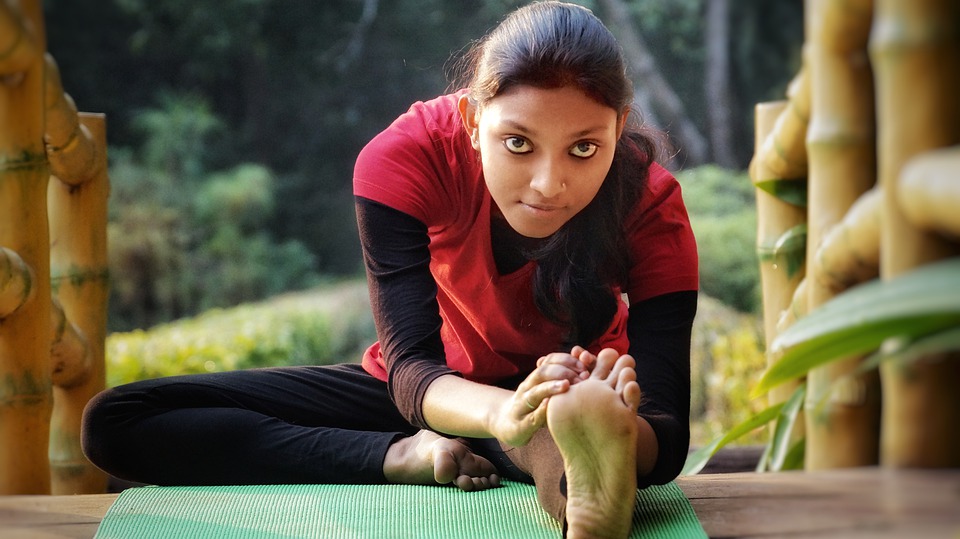This post is from our guest author Dr. Chethan Kumar (MD in Panchakarma) gives an overview basic self care that women should practice

Working Women Today
Work-life boundaries are getting increasingly blurred. Flexibility such as working from home has its advantages but makes it harder to disconnect from work at home and home at work. So most people end up constantly juggling between family commitments and a competitive professional environment without a pause. Over time, this creeps up as physical and mental health issues. As we celebrate women’s health this month, let’s look at self-care for women as recommended by Ayurveda.
What is self care?
Self-care or identifying and meeting your health need is beyond a spa get-away or buying some products. It is shifting the balance from just focusing on caring for others to taking time to prioritize personal well-being. For many women, this is an uncharted territory. The current day lifestyle is adding to the health issues that women face such as menstrual disorders, PCOD, infertility, menopausal syndrome, obesity, joint problems, skin disorders, anxiety, mood swings, irritability. Ayurveda broadly emphasizes on the following areas of women’s health
5 Self-care tips for women from Ayurveda
#1 Food awareness puts you in a good spot.
Conscious eating can take us a long way. Of course common recommendations about food include timely eating, not skipping meal, controlling snacking etc. Here are some diet recommendations from Ayurveda for women during:
- Periods: Fresh, warm and easily digestible food is great during this time. Liquid options like porridge is highly recommended. Avoid food that causes constipation to you. Cumin, fennel, ginger and fenugreek can help you reduce the discomfort that comes along with periods.
- Pregnancy: Includes fresh fruits, dry fruits, nuts, legumes and whole grain. (Sign up for the webinar on Ayurveda for Healthy Pregnancy)
- Menopause: Include milk and milk products to meet for calcium. Fruits, greens and veggies rich in iron, vitamins and minerals are recommended for this period
- Weight management: pinches of turmeric, cinnamon, dry ginger powder with a cup of warm water in the morning in an empty stomach can help to reduce the weight.
#2 Exercising & healthy weight management.
We tend to associate exercise with just weight loss. However, it influences ovulation and conceptions too since exercise controls BMI changes that in turn regulates the metabolic and endocrine functions which affects a woman’s ability to ovulate and conceive naturally.
It is recommended to include 30-45 minutes exercise such as brisk walk, jog, workout or yogasana.
Many times women gain weight due to underlying conditions like hypothyroidism, PCOD and fatty liver. It is important to get advice from a certified Ayurveda expert to develop a healthy weight management plan. (To know more, check out the webinar on Healthy Weight Management with Ayurveda)
#3 Tracking your periods.
An affected ovulatory cycle causes irregular menstruation which can lead to anxiety or stress. These gynecological conditions can affect a woman’s personal, social and professional growth, thus giving rise to a range of psychological issues. Menstrual irregularity is also being associated with an increased risk of bone fractures related to reduced bone mineral density. It is always advisable to keep a tab on menstruation and to meet an Ayurveda expert if you notice menstrual irregularities for 3-4 successive cycles. (To know you can sign up to for a live webinar on Managing Your Period With Ayurveda.)
#4 Managing moods and anxiety.
Prolonged stress increases cortisol levels in the body causing skin problems, sleep disturbance, low concentration and lowered immune response. Creating routines and plans are great tools to avoid or reduce last minute decision-making and will help to control anxiety. You can drink boiled milk mixed with Brahmi (Bacopa) or Jatamansi to manage anxiety. Please consult an Ayurveda expert for rich treatment plans like Panchakarma, Shirodhara or Abhyanga.
#5 Rest to recuperate.
The body needs to recuperate. Not just from illness but from everyday wear and tear. Sleep has a direct impact on mental, physical and menstrual health. Good sleep of 7-8 hours can boost your mind and help to prevent many health problems. Consider avoiding coffee, tea, or alcohol after evening hours. Drink a cup of lukewarm milk with Ashwagandha before going to bed.
Take a pause & self-care with Ayurveda
The in flight announcement of “help yourself before you help others” is very relevant, and we invite all the awesome women out there, who spend their lives taking care of people around them, to take a pause and self-care with Ayurveda, a natural, holistic way to health.
Dr. Chethan Kumar consults on Satva. Download the app [Google Play | App store] to book an appointment. Or you can also post questions on our Ask an expert forum and our panel of experts can answer.

